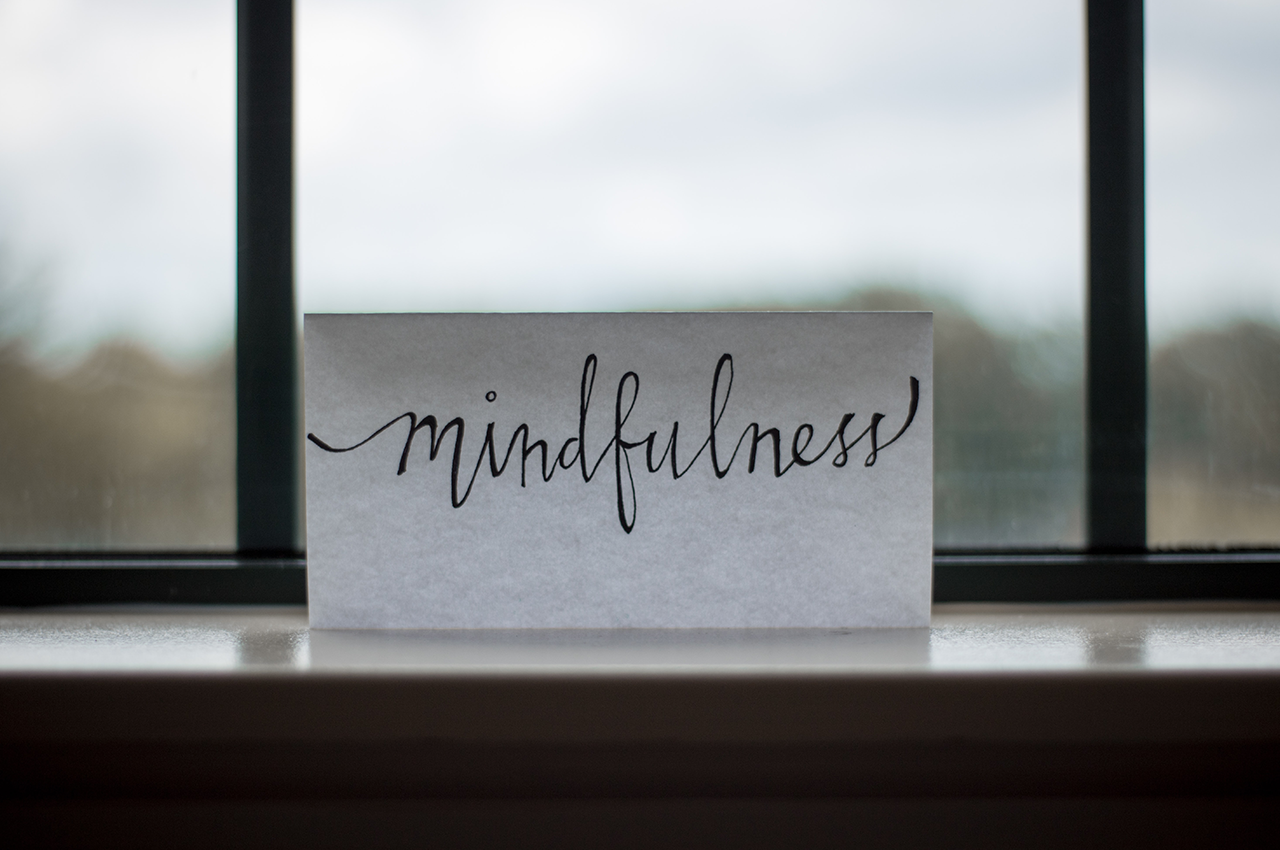Maybe someone mentioned mindfulness to you, and you were curious. But then, they said “meditation”, and your eyes glazed over. We get it. Meditation sounds like something that only certain religions, yogis and health-nuts practice. So what does it have to do with science, health and your wellbeing?
What is mindfulness?
Think of your mind as having different ‘states’ of functioning: sleep-state, focus-state, ‘zoning out’-state, creative-state, stress-state, relax-state, and so on. The mindfulness-state is just another state of mind. The reason mindfulness has become so popular recently, is that scientists have discovered that this state of mind can help people cope with stress, anxiety and even depression.
Mindfulness practice is like a training-program for your brain. Just like you can train your body to run better, swim better or to be more flexible, you can train your brain to be more mindful. And, if your brain is more mindful, this can help to calm your mind and body, and cope better with stress, pain or even illness.
How does it work?
Step #1: Pay attention
Try this: put your hand on your tummy, and take 3, deep, slow breaths towards your hand. Feel your belly moving as you breathe. Focus only on this sensation, in this present moment.
Well done! You have just done a short, simple mindfulness practice! You didn’t need to close your eyes, sit in a strange position or chant – all you had to do, was bring your attention to the present moment. This is what mindfulness teaches you: it teaches you to bring your full attention to this moment, and helps your mind to calm down in the process.
Beyond focusing on your breath, you can also focus your attention on what you’re hearing, what you’re feeling in your body or even the scents in the room. The purpose is to pay attention to your emotions, your thoughts , your environment and the way your body feels right now.
Step #2: Don’t judge!
The next part of mindfulness is to just notice things: and not immediately judge it. For instance, while you did the first breathing exercise, you may have been thinking: “Am I doing it right?” or “This is really stupid.” Your mind is in the judgement-state, and that’s okay: we need to know how to judge good and bad, dangerous and safe – it helps us navigate the challenges of life. However, the mindfulness-state is a state of mind where you practice acceptance, not judgement. And it can be quite a difficult thing to learn!
Step #3: Try it!
There are a ton of mindfulness apps out there that you can try. We particularly like the headspace-app, since they show you how simple this practice can be, without making it weird.
If you just want to try being mindful without any assistance, here’s something you can do:
Exercise 1:
- Go outside. Take a few, deep breaths. Pay attention to your breath.
- Notice what the air feels like on your skin: is it hot or cold? Is there a breeze, or is it wind-free? Is it humid or dry?
- Shift your attention to the sights: what do you notice? Notice things that are close, and things that are far away. Be curious: what have you not noticed in the environment before? Are you starting to think and make judgements? That’s okay! Just notice your thoughts, and bring your attention back to noticing the environment: What plants do you see? What are their colors? What are the shapes? Just continue noticing them.
Exercise 2:
- Have lunch by yourself, in a quiet environment. Only pay attention to your meal: smell the food. Notice all the different scents, before you take a bite, When you take a bite, chew slowly, and pay attention to the taste, the texture, the temperature. If your mind starts running off to think about work or life, just notice it, and bring your attention back to your food. Savour each bite, and experience the taste on multiple levels.
This may be very difficult at first: You may find it hard to focus your attention on just one thing at a time, but that is exactly why it’s so important to practice! It’s just like when you go to gym for the first time: the exercises are difficult, until your body learns to adapt, and gets more comfortable with the new movements.
Over time, though, you will find it easier to be mindful, and this will influence your stress-hormones, anxiety-levels and even your general mood. And you don’t need to feel like a weirdo: it’s the most natural thing!
Written by Dr. Albert J. Viljoen
References:
https://www.ncbi.nlm.nih.gov/pmc/articles/PMC3679190/
http://www.webmd.com/balance/tc/mindfulness-based-stress-reduction-topic-overview#1
https://www.headspace.com/science

